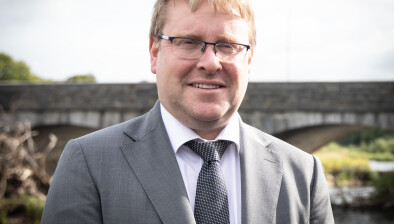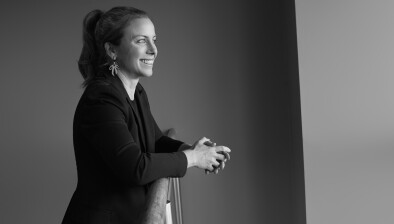High Court: Use of claddagh rings trademark restrained amid family feud
The High Court has made orders restraining the use of the famous claddagh rings trademark pending the determination of proceedings.

About this case:
- Court:High Court
- Judge:Mr Justice Mark Sanfey
In related hearings heard alongside the injunction application, the court made a series of rulings related to the company that makes and sells and the famous Claddagh rings, including an order that Philip Fried be restored as a director of the company.
Mr Justice Mark Sanfey declined to make other orders sought in relation to the company until the matter returns before the court on 9 July 2020.
Background
Philip Fried sought interlocutory injunctive relief in relation to the trademark “Claddagh Jewellers”, being a registered trademark in Ireland, and an order restraining Andrew Fried and Claddagh Jewellers Limited from unlawfully utilising “any of the intellectual property of the plaintiff” in conjunction with their businesses.
The court heard the application together with an application pursuant to s.212 of the Companies Act 2014. The solicitors for Andrew Fried made an applied to come off record in the s.212 proceedings, and for both defendants in the trademark proceedings. The judge informed Mr Fried that the proceedings would continue whether he was legally represented or not, and he replied that he understood this.
Counsel and solicitor for Philip Fried proceeded with the present application for injunctive relief notwithstanding the absence of any appearance by or on behalf of either defendant.
Mr Fried initiated the proceedings by plenary summons on 4 July 2019, and a statement of claim was delivered on 9 July 2019. He contends that he is the owner of the mark “Claddagh Jewellers”. That mark was registered on 16 April 2012 in Ireland, and with the European Union Intellectual Property Office on 15 February 2016, in his name.
Philip Fried contends that Andrew Fried unlawfully procured the transfer of the mark and associated rights from Philip Fried’s sole name to a company of which the brothers are each 50 per cent shareholders, Claddagh Jewellers Ltd, the company which is the subject of the s.212 proceedings. This appears to have been carried out by Andrew Fried’s use of a Power of Attorney of 21 September 2005 given in Spain by Philip Fried to Andrew Fried to act on his behalf.
Philip Fried alleges that the Power of Attorney was given “for purposes associated with and limited to the dealing of property and other matters in Spain” and that the said transfer was carried out without his authority or consent.
He said that Andrew Fried procured a further transfer or assignment on 16 April 2019 of the mark by Claddagh Jewellers Ltd into the joint names of Philip Fried and Andrew Fried, again without his authority or consent. He alleged that Andrew Fried indicated his intention to use Claddagh Jewellers Ltd as the corporate vehicle to which he will seek to appropriate part of the business of Claddagh Jewellers Ltd, and to otherwise establish a business and thereby to infringe and unlawfully convert Philip Fried’s rights, title and interest in the Mark.
Mr Fried sought various declaratory and injunctive orders in the statement of claim seeking to correct the Register of Trade Marks and restraining various alleged breaches of intellectual property of the plaintiff. No defence was filed by either of the defendants.
Mr Justice Sanfey said that that notwithstanding the fact that the defendants chose to “cut their ties with their solicitors and abandon their defence of the plaintiff’s motion”, the court was obliged to consider the averments in all the various affidavits before it to assess whether the reliefs sought are appropriate.
The judge considered the decisions of Mr Justice Brian McCracken in B&S Limited v Irish Auto Traders Limited [1995] 2 IR 142, Mr Justice Hugh Geoghegan in O’Murchú T/A Talknology v Eircell Ltd, unreported, Supreme Court, 21 February 2001, that the appropriate application is the established Campus Oil principles test with suitable regard to the manner in which the classic test has been interpreted or re-assessed by Mr Justice Donal O’Donnell in Merck Sharp & Dohme Corporation v Clonmel Healthcare Limited [2019] IESC 65, and Mr Justice Frank Clarke in Okunade v Minister for Justice [2012] 3 IR 152.
The judge was satisfied that there is a fair question to be tried that Philip Fried’s rights under the trademark registered in his name in Ireland in 2012 and with the European Union Intellectual Property Office in 2016 have been infringed.
He said that Andrew Fried, in effect, accepts that he procured the assignment of the trade mark in 2018 without Philip Fried’s consent, and by use of a Power of Attorney “which it must be doubtful could ever be legitimately used for the purpose of transferring a trade mark out of the plaintiff’s name without his consent. While [Andrew Fried] avers that he did so for good reason, it is clear that there is at least a fair question to be tried between the parties.”
Conclusion
The court made an order restraining the defendants from using, or infringing upon the plaintiff’s rights to, the Claddagh jewellery trademark pending the determination of proceedings.
The judge urged the parties to make renewed efforts to resolve matters “without further recourse to outings in the court which will likely harm the company, deplete its resources, damage its reputation and endanger the jobs of its employees.”









